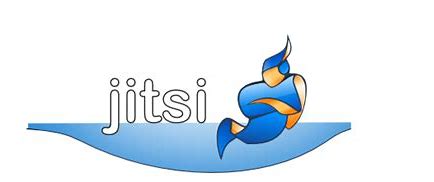Tired of knowing that Zoom, Hangouts, Meet, Skype, and most of the other video conferencing platforms get snooped on by the CCP, if not our own intelligence community? Need a good alternative? There are a few out there, and most of the free ones are more or less implementations of Jitsi (https://jitsi.org). What is Jitsi? Jitsi is a FLOSS videoconferencing solution which is based on a cluster of protocols, but is built around these two: Jitsi Videobridge and Jitsi Meet, which let you have video and audio conferences on the internet. If you want the comfort of knowing that your video calls are as private as they can be, Jitsi may just be the way forward for you. To be clear, I believe that Gab Voice (https://voice.gab.com), Brave Talk (https://talk.brave.com), and Zoho Meeting (https://meeting.zoho.com) are all based on Jitsi from what I can tell on the surface, just branded differently.
Jitsi Videobridge (Jibri) allows you to record and stream conferences on your server. Jitsi Meet is the front-end application which allows you to connect to the Jibri instance and communicate more or less seamlessly with whomever you desire or need to communicate with. There is also Jicofo which is the conference focus element, which is server-side, and functions as something of a traffic cop for participants and connects each one to the best available Jibri instance. There is also Jigasi (the Jitsi Gateway to SIP) which is also server-side which allows regular clients to connect to a call on a Jibri instance, while also providing transcription capabilities.
So if you want to use the free, hosted tool, it is easy enough to open up https://meet.jit.si and start a meeting, and that is plenty for most people. The thing that makes Jitsi Meet great for privacy is that it automatically end-to-end encrypts every call. As long as you set a decently strong password, no one you do not invite will be able to snoop on your meetings or calls. It doesn’t even require anyone to download anything, unlike with Zoom, Skype, or most of the other major competitors. That’s right, it purely functions in your browser when you are on a call. Does that mean that there are no desktop or mobile apps, certainly not, as there are apps for all major platforms, but they basically function as wrappers for the webRTC back end which is where all the magic actually happens. Another cool way to use it is to either set up a page or a sub-domain on your website, and paste in the integration for Jitsi-As-A-Service, or JAAS, from their site, and that will allow you to create a branded (or unbranded) place for you and your friends, family, co-workers, or clients to meet in a central location which keeps them on your site the whole time. You can go through the process of setting it up on their end here: https://jaas.8×8.vc/#/ . As an aside, the writer has done this on his own site, as well as the site for his wife’s ministry, and as long as you and the person(s) you are talking to load the page with https, it should work like a dream.
If you are more concerned with privacy and security and are wanting something that you can host yourself, you are in luck, because Jitsi can easily be run on your own server, and the process has grown far simpler than it was in years gone by. All you have to do is set up Docker, then install the Docker container, and as long as it is on a VPS, rather than your personal network, and you point it to a sub domain you own, you should be pretty much golden. If you want to experiment with this, take a look at this guide: https://jitsi.github.io/handbook/docs/devops-guide/devops-guide-docker .
You might be wondering why I’m bothering to talk about this right now, when Altha Tech offers hosted vdo.ninja to do the same basic things, and in some ways more, even. The writer and Jared have an appreciation for Jitsi because It has been around for quite some time, in fact, the beginnings of Jitsi stretch all the way back to the early 2000s, with the SIP Communicator, which was first developed 20 years ago. It became Jitsi, which is Hungarian for “wires” in 2011. The 2010’s were a busy decade, with Jitsi growing into a full-fledged video-conferencing solution, and with 8X8 purchasing it in 2018. JAAS, which I mentioned earlier, was first released in 2020. I hope this explains enough to whet your appetite to check out this great project soon.
